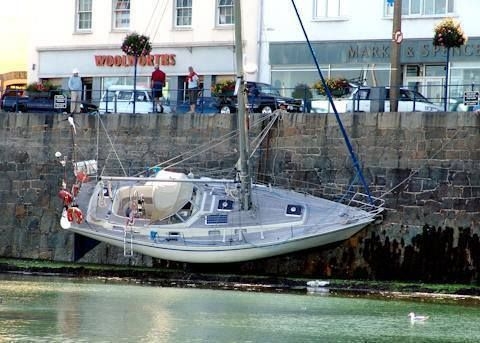What’s in the News
Transport Canada New Training Requirement for MED Courses
Fatigue Management at Sea Training Course
In October 2025, Transport Canada introduced this training course as a prerequisite for any Marine Emergency Duties course, including the SDV-BS. The Fatigue Management at Sea course is conducted online, and it is mandatory. If you arrive at the training without this course, you can still complete it – but you won’t be issued a training certificate until you complete the Fatigue Management at Sea course.
There is no fee for this course if you have first obtained a Candidate Document Number (CDN). The CDN number is used by Transport Canada to track your training certificates. There is no fee associated with obtaining the CDN. If you don’t have a CDN, you can still take the course but there will be a $20 fee. It’s not difficult to get a CDN and it is worth the effort. You do not need Canadian citizenship status to obtain a CDN.
Step 1: Candidate Document Number (CDN) Application Instructions
https://tc.canada.ca/en/marine-transportation/marine-training-certification-individuals/marine-related-documents-services/get-candidate-document-number
Step 2: Fatigue Management at Sea Training Course
https://www.ccohs.ca/distributors/transport-canada
.
SVOC is Still Just a Rumour
When Transport Canada (TC) issues new Marine Personnel Regulations in 2026 (hopefully), there will no longer be the SVOP, which is a Training Certificate.
In it’s place, TC will introduce the Small Vessel Operator Competency, the SVOC. The SVOP remains valid.
Here are some of the proposed differences:
SVOP is a certificate of training, and the SVOC is a Certificate of Competency. While the final details are being worked out, we do know that it will be a certificate issued when you present all required training certificates. Also, there may be a requirement for sea-time, but that is still being resolved. SVOC will have an expiry date.
The SVOC will be one-day longer in duration. The 4-day basic module is accompanied by a one-day training module and examination in either passenger, work boat or fishing vessel programs. The SVOP is equivalent to the basic module, so only one-day of training will be required to upgrade to the SVOC.
While the SVOP is valid for the operation of vessels up to 5 gross tonnage, the proposed SVOC will be based on a length overall of 12 metres.
Restricted Operator Certificate
(ROC-M)
The Restricted Operator Certificate – Marine (ROC-M) is now being offered during the evenings while the SVOP is running. Make the most of your training days by getting your radio certificate at the same time.
You don’t want to find yourself pleading your case in front of this Transport Canada Tribunal.
http://www.tatc.gc.ca/decision/index.php?dct_id=2&lang=eng&npp=30&pg=1&rs=1
Transport Canada Expands Definition of ‘Sheltered Waters’
Transport Canada is updating the Vessel Certificates Regulations to propose a broader definition of a sheltered waters voyage and to expand the sheltered waters voyages schedules. These proposed changes mean that some waters currently classified as near coastal voyage, Class 2 voyages would be classified as sheltered waters voyages.
http://www.tc.gc.ca/eng/marinesafety/bulletins-2015-03-eng.htm
TC Regulations Updates
Updated Regulations regarding the use of PFDs in lieu of Lifejackets
Find out when and how you can use PFDs in lieu of Lifejackets on some commercial vessels.
http://www.tc.gc.ca/eng/marinesafety/bulletins-2012-06-eng.htm
Legalization of cannabis in Canada and vessel operation
This bulletin reminds authorized representatives and seafarers of their responsibility to operate vessels safely, taking into account the implications of the Cannabis Act and related amendments.
Using Pleasure Craft as Commercial Vessels
This bulletin will help you understand what type of vessel you’re using, and how to use it safely and legally in Canada. It will help differentiate when a pleasure craft rented or hired, becomes a non-pleasure craft (commercial vessel).




Miller Marine Training
National Business Number:
84877 8643 BC0001
